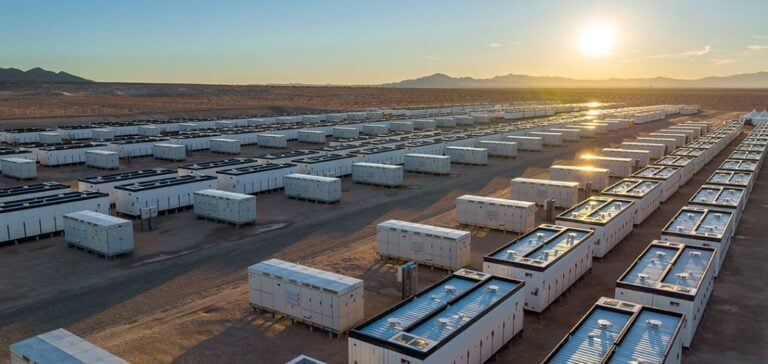The energy sector is witnessing the emergence of a new player in autonomous storage with the official approval of the Salzburg Battery Storage Project in Midland Township, Michigan. This battery energy storage system (BESS) is designed to strengthen the reliability of the region’s power grid, with a total capacity of 150 MW and an energy storage of 600 MWh.
Installed on a 15-acre site in northwest Midland Township, the project relies on autonomous technology, without dependence on solar or wind facilities. This infrastructure will connect directly to Michigan’s transmission grid through a dedicated substation. Services provided include peak shaving, load shifting, and grid regulation, effectively replacing traditional peaker plants with near-instantaneous response capabilities.
Innovative Design and Ambitious Goals
ESA, the company behind the project, highlighted the strategic importance of the Salzburg Project for modernizing the power grid. According to Lindsay Latre, the company’s CEO, the project is the result of several years of intensive work to navigate a rigorous local and state permitting process.
The BESS design enables it to meet the energy needs of 30,000 households for an average of four hours. The system is also designed to improve grid resilience with advanced functionalities, including black start capabilities and energy arbitrage.
Regulatory Process and Next Steps
Obtaining the permit required close collaboration between ESA, state regulators, and local authorities in Midland Township. This process, described as “groundbreaking” by ESA, paves the way for other similar autonomous systems in the region.
The project, currently under review in the 2023 cycle of the Midcontinental Independent System Operator (MISO), is expected to finalize studies and the interconnection phase by 2026. Once operational, it will be managed over a projected 30-year lifespan before undergoing environmentally responsible decommissioning.
A Growing Market
The Salzburg Project is part of a growing trend of autonomous storage systems in the U.S., addressing increasing demand for flexible and sustainable energy solutions. ESA’s approach could serve as a model for other initiatives aiming to modernize power grids while meeting environmental and economic requirements.
This project also underscores the importance of local collaboration and stakeholder engagement to overcome the regulatory and technical challenges inherent to energy innovation.





















